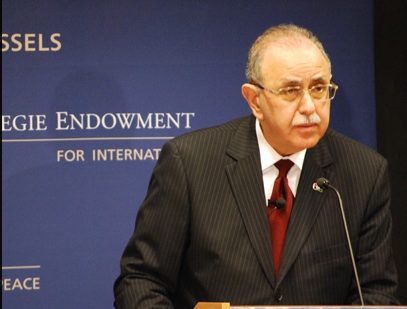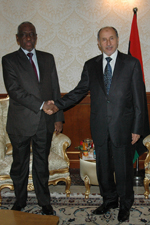Tripoli, 12 June:

A delegation led by Sudan’s First Vice-President Ali Osman Mohammed Taha landed in Tripoli on Sunday for talks with Prime . . .[restrict]Minister Abdurrahim El-Kib, NTC Chairman Mustafa Abdel Jalil and a number of other senior officials, with politics, the economy and regional security all being discussed.
The two delegations also discussed relations between Sudan and South Sudan, less than 12 months after the latter gained its independence from Sudan. Prior to South Sudan’s independence last July, Sudan was amongst Africa’s biggest oil producers, along with Libya. Most of the oil is concentrated in what is now South Sudan, however, with the bulk of refining capacity remaining in the north.
The visit underscores Libya’s pragmatic approach to relations with regional neighbours at a time when Libyan border security, and state infrastructure generally, remains weak following the upheavals of last year’s revolution.
Last November, NTC Chairman Mustafa Abdul Jalil traveled to Khartoum for talks with Sudanese President Omar Al-Bashir, a man wanted by the International Criminal Court for alleged War Crimes, Crimes Against Humanity and Genocide committed against Sudanese in Darfur.
For many years, the Qaddafi regime supported Darfur’s rebel Justice and Equality Movement (JEM), and last year the group staged several attacks against Libyan revolutionaries in the southeastern town of Kufra, just a few hundred kilometers from the Sudanese border.
In the past few months, a number of developments have taken place in bilateral relations between Sudan and Libya. On 24 April a memorandum of understanding was signed between the two countries on the exchange of experts and expertise, with Sudanese construction companies, doctors and teaching staff all being invited to the country.
Last month, Egypt’s foreign minister, Mohamed Amr, announced that preliminary discussions had begun on closer economic relations between Egypt, Libya and Sudan in what has been called the “Triangle of Cooperation”.

[/restrict]








